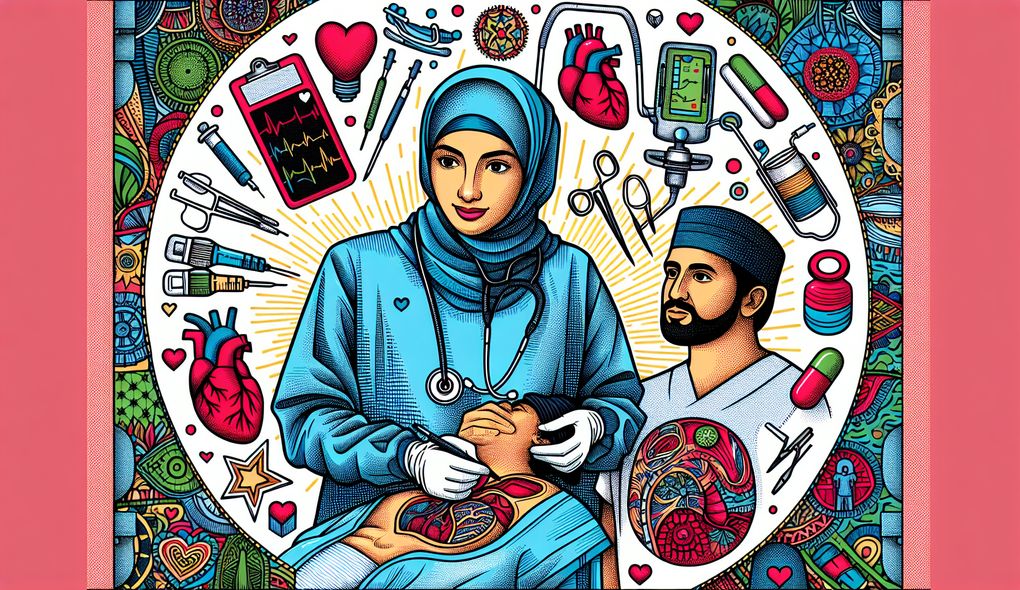How do you handle stressful situations while providing patient care?
INTERMEDIATE LEVEL

Sample answer to the question:
When it comes to handling stressful situations while providing patient care, I always strive to remain calm and composed. One of the techniques I use is deep breathing exercises to help me stay focused and centered. Additionally, I find it helpful to prioritize tasks and break them down into smaller, more manageable steps. This allows me to tackle one issue at a time and prevents feeling overwhelmed. In a team-oriented environment, I believe in open communication and collaboration. Sharing the workload and seeking support from my colleagues helps to alleviate stress and promotes a sense of unity. Overall, my ability to handle stressful situations while providing patient care stems from my strong clinical skills, critical thinking abilities, and dedication to delivering high-quality care.
Here is a more solid answer:
Handling stressful situations while providing patient care is something I excel at. In my previous role as a Medical-Surgical Nurse, I encountered numerous challenging situations that required quick thinking and composure. For instance, there was a time when a patient went into respiratory distress post-surgery. I immediately assessed the situation, called for assistance, and initiated appropriate interventions, such as administering oxygen and performing respiratory treatments. Through effective communication and collaboration with the healthcare team, we stabilized the patient and prevented further complications. My strong clinical skills, including my knowledge of pharmacology and medication administration, allowed me to respond swiftly and confidently in this high-pressure situation. Moreover, my excellent communication and interpersonal skills helped me reassure the patient and their family, providing them with the necessary information and emotional support. I believe that staying calm, prioritizing tasks, and collaborating with others are key to managing stress while delivering optimal patient care.
Why is this a more solid answer?
The solid answer expands upon the basic answer by providing specific examples that highlight the candidate's experience and skills in handling stressful situations while providing patient care. It also emphasizes their strong clinical skills, excellent communication, and interpersonal skills, all of which are essential for the Medical-Surgical Nurse Practitioner role. However, the answer could still benefit from further details and examples to showcase their ability to work well in a team-oriented environment and their critical thinking and problem-solving abilities.
An example of a exceptional answer:
Handling stressful situations while providing patient care is a critical aspect of being a Medical-Surgical Nurse Practitioner, and I have honed my skills in this area through years of experience. One particularly demanding situation occurred when I was caring for a patient who experienced a cardiac arrest during surgery. The room was filled with tension and anxiety, but I remained calm and immediately initiated CPR protocols. I directed the team members and coordinated their efforts seamlessly, ensuring the patient received the necessary interventions, including defibrillation and medication administration. Through effective communication and critical thinking, we were able to successfully resuscitate the patient and transfer them to the ICU for further care. This experience reinforced the importance of teamwork and the ability to think quickly in high-pressure situations. I actively engage in regular simulations and emergency response training to enhance my skills and stay current with the latest advancements in medical-surgical nursing. By combining my strong clinical skills, excellent communication, and problem-solving abilities, I consistently deliver exceptional care in stressful situations.
Why is this an exceptional answer?
The exceptional answer takes the solid answer to the next level by providing a highly specific and impactful example of how the candidate handled a stressful situation while providing patient care. The candidate demonstrates their ability to lead a team and coordinate efforts effectively in a life-threatening situation. They also highlight their commitment to ongoing education and professional development, which aligns with the job description's emphasis on staying abreast of the latest medical and surgical nursing practices. The answer showcases the candidate's exceptional skills in all the evaluation areas mentioned in the job description. However, it could still benefit from including additional examples or anecdotes to further demonstrate their skills in working well in a team-oriented environment and their critical thinking abilities.
How to prepare for this question:
- Reflect on past experiences where you faced stressful situations in patient care and think about how you handled them. Be ready to provide specific examples during the interview.
- Review case studies or scenarios related to medical-surgical nursing to refresh your knowledge and critical thinking skills.
- Practice deep breathing exercises or stress management techniques to help you stay composed during challenging situations.
- Familiarize yourself with the latest advancements in surgical patient care and stay updated on relevant research or best practices.
- Consider taking additional courses or certifications in areas such as critical care or emergency response to enhance your skills and demonstrate your commitment to ongoing learning.
What are interviewers evaluating with this question?
- Ability to handle stressful situations with composure
- Strong clinical skills
- Excellent communication and interpersonal skills
- Ability to work well in a team-oriented environment
- Critical thinking and problem-solving abilities

